The UofT vMPI is stressing you out and all tips you find online seem the same? This is about to change.
In the competitive world of medical school admissions, every candidate searches for that one unique edge, the insider tip that sets them apart. For aspirants of the prestigious University of Toronto’s Temerty Faculty of Medicine, this edge lies in mastering the virtual modified personal interview (vMPI). A critical component of the selection process, the UofT vMPI is a nuanced and challenging format, designed to assess not just your knowledge, but your ability to think critically and reflectively in real-time. But what if there was a strategy, a hidden gem of preparation, that you won’t find in traditional guides or forums? This article reveals an exclusive tip that can significantly elevate your preparation: the strategic review of past essay questions.
Surprisingly, these essays mirror the structure and themes of the UofT vMPI, particularly aligning with the UofT’s distinctive clusters. Through this innovative approach, we will share the past essay questions and guide you in turning them into a powerful tool for your interview success, utilizing our professional insights to unlock your path to the Temerty Faculty of Medicine.

Understanding the UofT vMPI
The Temerty Faculty of Medicine virtual modified personal interview (vMPI) is a comprehensive assessment tool designed to gauge a candidate’s suitability for the demanding yet rewarding medical profession.
The Format:
The vMPI at the University of Toronto comprises four self-recorded stations. Each station presents a unique scenario or question, with candidates given a concise five minutes to record their response. This time constraint is deliberate, designed to evaluate your ability to think and articulate effectively under pressure.
Before recording each response, candidates are afforded a crucial three-minute period for reflection and preparation. This brief window is your opportunity to organize your thoughts, align them with the UofT’s clusters, and strategize your response to best demonstrate your competencies and understanding of the medical field.
Focus on UofT’s Clusters:
Central to the vMPI are the University of Toronto’s distinctive clusters: four pillars that encompass the essential qualities and skills expected of a medical professional. These include communication/collaboration skills, professionalism, advocacy, and critical thinking abilities via scholarly work. These questions are derived from the Royal College’s CanMEDS Roles. UofT MPI questions are intricately designed to probe these areas, seeking evidence of your potential as a future medical leader.
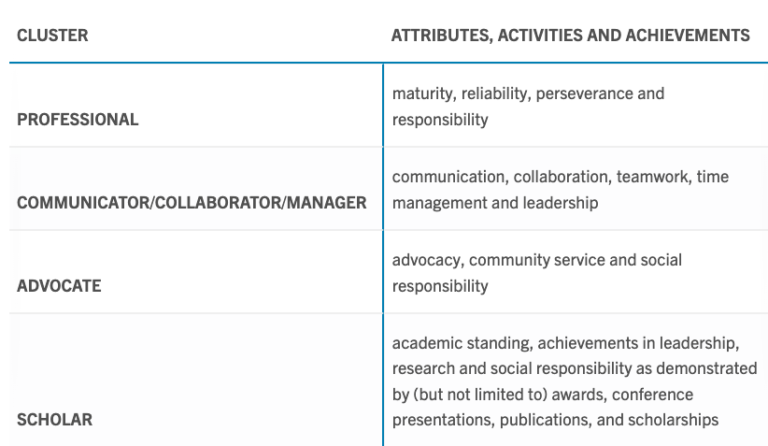
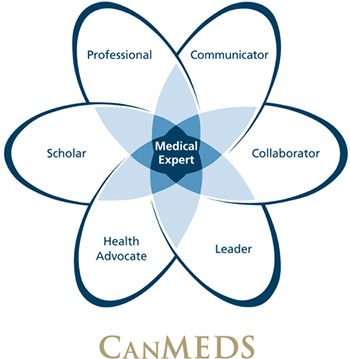
Types of Questions:
In the UofT vMPI, expect questions that span various domains:
- Ethical scenarios that test your moral reasoning
- Reflections on current events that gauge your awareness of global health issues
- Analysis of quotes to assess your critical thinking skills.
Each question is an opportunity to showcase how you embody the UofT’s values and clusters in your understanding and approach to medicine.
The vMPI’s unique format demands a unique preparation strategy, one that aligns closely with the University of Toronto’s ethos and educational objectives. As we delve into the next section, we will uncover how revisiting old essay questions can be a game-changer in your UofT MPI preparation, offering an unparalleled advantage in this competitive journey.
The Unique Tip – Leveraging Old Essay Questions
This approach is not just about revisiting old material; it’s a tactical method to familiarize yourself with the style and substance of questions you’re likely to encounter in the UofT vMPI.
Why Old Essay Questions Matter:
Past essay questions, a staple of medical school applications, are a treasure trove of insights. They are meticulously crafted to reflect the core values and competencies that the UofT deems essential for future medical professionals. By analyzing these questions, you gain a deeper understanding of what the faculty values and how they assess candidates’ suitability.
Mirror to UofT vMPI Questions:
Many of these essay questions bear a striking resemblance to the type of questions encountered in the vMPI. They often involve ethical dilemmas, reflections on personal experiences, and opinions on current healthcare issues – themes that are central to the vMPI. By practicing answering these essays questions as though they were interview questions, you can develop a sense of how to structure your thoughts and articulate your responses within the UofT vMPI’s format.
Practical Application:
We have done the hard work for you and gathered many of the previous UofT essay questions asked in the past few years. Analyze each question, identifying underlying themes and clusters. Practice formulating responses within the five minutes that are concise, reflective, and aligned with the UofT’s values. This exercise will not only prepare you for the type of content you will face in the UofT MPI but also enhance your ability to communicate your thoughts in a clear, structured, and impactful manner.
Don’t Forget To Check Out Our Database Of Medical Students/Residents Who Can Help Practice For Interviews (UofT MPI, MMI, Panel) By Clicking Below:
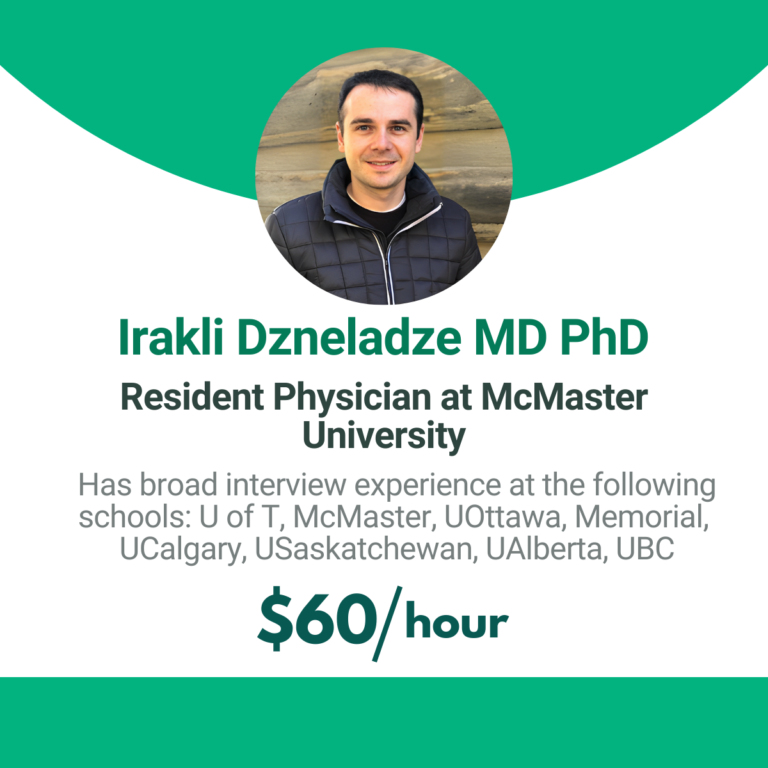
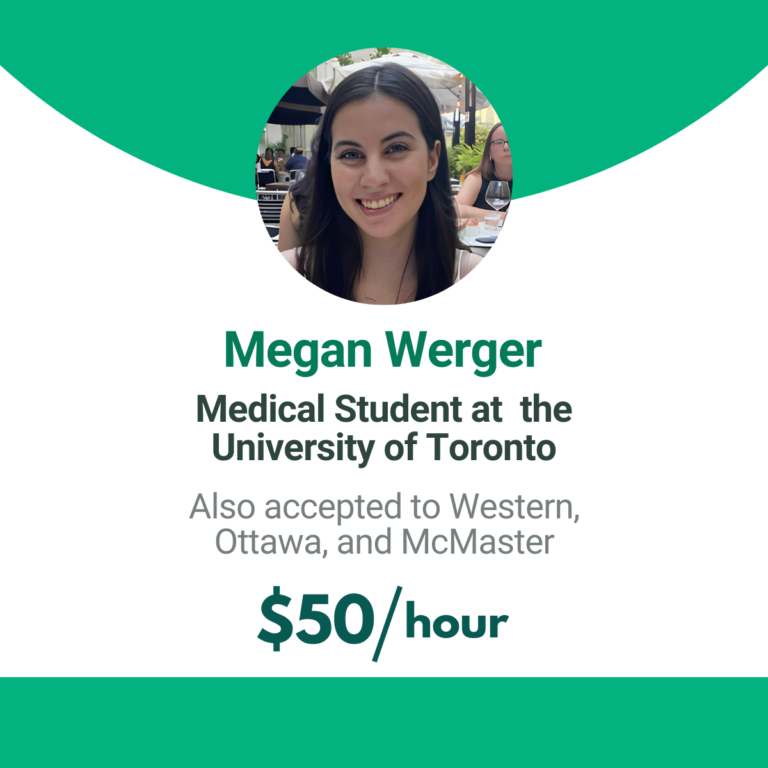
The Grand List of Previous University of Toronto Temerty Medicine Essay Questions:
- The use of artificial intelligence is increasingly being used to replace or assist humans in our daily lives. The basis of artificial intelligence are the complex algorithms that drive the technology. In your opinion, what values, ethical and societal implications should be considered when developing such algorithms for assessing applicants to medical school?
- The Russian poet Marina Tsvetaeva said: “it isn’t that you need time to think, you need time to feel.” How does this statement connect with your future career in the field of medicine?
- The COVID-19 pandemic imposed obligatory changes in all our lives. What have you learned and how has this changed you as a person? Are there ways that you adapted that you would keep going forward?
- What is the purpose of a mentoring relationship? What are the 3 most important elements of a mentoring relationship? Discuss a mentoring situation that you experienced in relation to these qualities
- Privilege and oppression – what do these concepts mean to you?
- Describe what you view as the biggest benefits and the biggest challenges in how we communicate with one another since the introduction of social media?
- Dr. Danielle Ofri contends that “the single most powerful diagnostic tool remains the doctor/patient conversation, which can uncover the lion’s share of illnesses. But often the difference between what patients say and what doctors hear is vast”. Discuss and propose a solution.
- Provide an example of a time when undertaking critical analysis changed the way you considered an issue.
- Discuss the role of listening in cross-cultural communication to better understand the perspectives of people of different backgrounds.
- How have you used your resilience and coping mechanisms to make the most informed and rational decisions when faced with difficult circumstances?
- What type of feedback do you prefer to enhance your learning in and outside of academic environments? Why?
- “Reducing the economic gap may be impossible without also addressing the gap in empathy.” ― Daniel Goleman. Why is this the case? How might healthcare professionals advocate to help reduce these gaps?
- Uncomfortable conversations, although difficult and even hostile at times, are not necessarily unsafe ones. Do you agree or disagree? Discuss a time where you had to partake in such an uncomfortable conversation and how you handled it.
- There are many relationships that have an inherent power imbalance, such as teacher/student, physician/patient, or police officer/citizen. Describe a situation where you have experienced a power imbalance and what it taught you.
- Failure is an essential part of the learning process. Discuss a recent setback you experienced and overcame. What resources and/or tools helped you overcome this failure?
- Tell us about a time when you had to work with instructions/information that were in conflict with your core values.
- Connectors, according to Malcolm Gladwell, are the people in a community who know a large number of people and who are in the habit of making introductions that bring groups of people together for a common function or purpose. Gladwell attributes the social success of “Connectors” to the fact that “their ability to span many different worlds is a function of something intrinsic to their personality, some combination of curiosity, self-confidence, sociability, and energy.” Tell us about such a time in your life you were a connector. Did it come naturally to you, and if not, how did you overcome your hesitations?
- Presenting one’s opinion in the media can be dangerous. In today’s world, instant responses via mainline media and social media can be harsh, critical and hurtful. Social media shouting at each other seems to have become the norm, rather than a thoughtful, respectful conversation. As a leader of a social advocacy group, you have to make an announcement that you know will be unpopular with some members of your group and/or members of the larger community. How would you handle an ensuing social media storm?
- Describe an instance where you were obliged to take a course or other educational activity that you would not normally have taken. What did you learn from that experience?
- In Hope in the Dark, Rebecca Solnit writes, “Hope locates itself in the premises that we don’t know what will happen and that in the spaciousness of uncertainty is room to act… It’s the belief that what we do matters even though how and when it may matter, who and what it may impact, are not things we can know beforehand.” How can you relate Solnit’s quote to your life experiences?
- A recent UN News post states, “Unreliable and false information is spreading around the world to such an extent, that some commentators are now referring to the new avalanche of misinformation that’s accompanied the COVID-19 pandemic as a ‘disinfodemic’.” What would you do to address the increasing ‘disinfodemic’?
- Physician and author Abraham Verghese argues that the most important innovation to come in the medical profession in the next 10 years is human touch. Discuss.
- How does technology impact interactions and/or collaborative relationships among healthcare professionals?
- Describe an example of injustice that matters to you. How would a career in medicine allow you to better advocate in similar circumstances?
- What is your preferred style of learning? How has this impacted your educational development?
- Health care today combines both technical and personal aspects of care. Describe how you envision the balance of technology and compassion in physician‐patient relationships?
- Describe an experience you had working on a committee or group with members from diverse backgrounds. How was the leader of the group chosen? Is there an essential characteristic for leaders of such groups? Why?
- Please describe an experience, an event or an encounter with an individual or group which led to your directly intervening to help others or to taking some action.
- Describe someone who you have interacted with who you feel is a talented teacher. What characteristics does this person embody and how have you tried to adopt these qualities through your own actions?
Our Important Recommendations For Answering Questions
Honesty in Scenario-Based Questions

Emphasizing Authenticity:
In the UofT MPI, candidates are often presented with hypothetical scenarios to assess their ethical and moral reasoning. It’s crucial to avoid fabricating or idealizing your responses. Remember, interviewers are not fools and can usually discern when a response doesn’t ring true.
Realistic Responses:
When confronted with a scenario, such as dealing with a friend engaged in ethically questionable behavior, it’s important to respond realistically. For instance, while it might seem admirable to say you would report a friend in certain scenarios, if your honest reaction would be to handle it personally, then that’s the response to share. This approach reflects the kind of integrity and authenticity valued in the medical profession.
Adopting a Conversational Tone

Engagement Over Monotony:
A common pitfall in interviews, including the UofT vMPI, is delivering responses in a monotonous, robotic manner. Even though this is not a traditional panel interview, and there is less face-to-face interaction than an MMI, you should still be conversational. To stand out, adopt a conversational tone. This doesn’t mean being informal, but rather engaging the interviewer as if you’re having a thoughtful discussion with a peer. Think back to your university courses when you certainly paid more attention during seminar discussions than lectures. This is because the seminar discussions were more conversational.
Practice Makes Perfect:
To develop a more conversational style, practice responding to typical interview questions and record yourself. Aim for each successive attempt to be more relaxed and natural. This technique is particularly effective in preparing for recorded interviews like the UofT vMPI.
Avoiding Cliché Answers In The MPI

Be Unique, Be Memorable:
Interviewers, including those at the UofT vMPI, hear a plethora of cliché responses. Distinguish yourself by avoiding overused phrases and predictable answers. For instance, when discussing your motivation for pursuing medicine, delve beyond the generic “I want to help people.” Share unique experiences or perspectives that genuinely reflect your passion.
Differentiate Your Responses:
In questions about personal weaknesses or favorite books, steer clear of standard answers. Offer an authentic weakness you’re working to improve, or talk about a non-medical book that genuinely captivated you. This authenticity makes your interview memorable and shows depth in your character.
Balancing Confidence with Humility
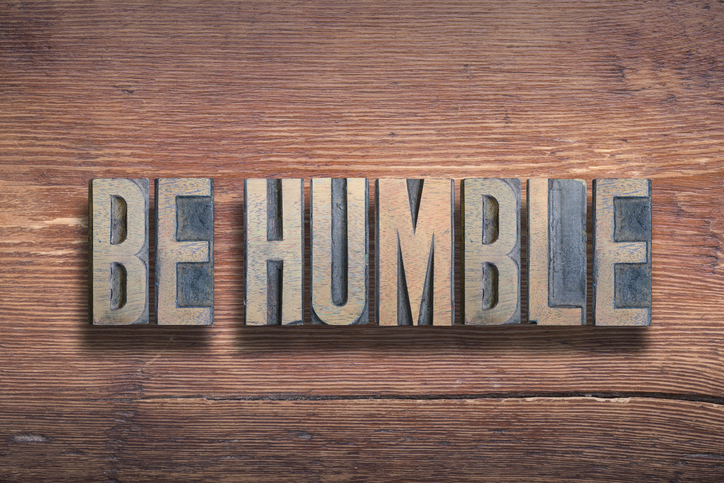
Humility is Key:
While confidence is crucial, overconfidence can be a deterrent. In the medical school interview context, particularly at the Temerty Faculty of Medicine’s vMPI, humility is highly valued. Recognize and acknowledge that while you have strengths, you are also part of a pool of highly qualified candidates.
Responding with Humility:
When asked why you should be chosen or if you’re certain about your suitability for the medical profession, focus on your dedication to continual learning and growth, rather than claiming superiority over other candidates. This demonstrates a mature understanding of the profession and makes you a more appealing candidate.
Don’t Forget To Check Out Our Database Of Medical Students/Residents Who Can Help Practice For Interviews (UofT MPI, MMI, Panel) By Clicking Below:
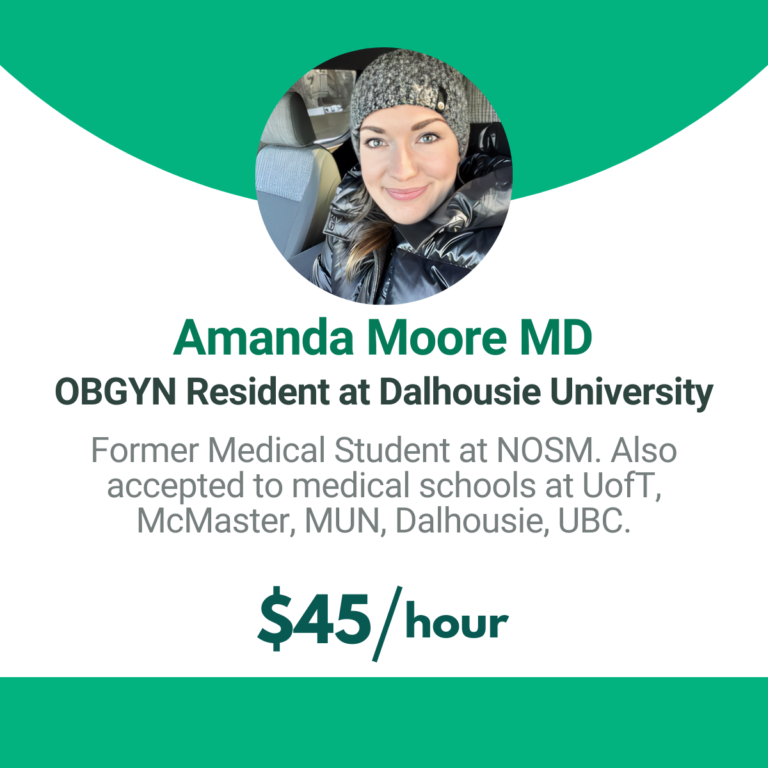
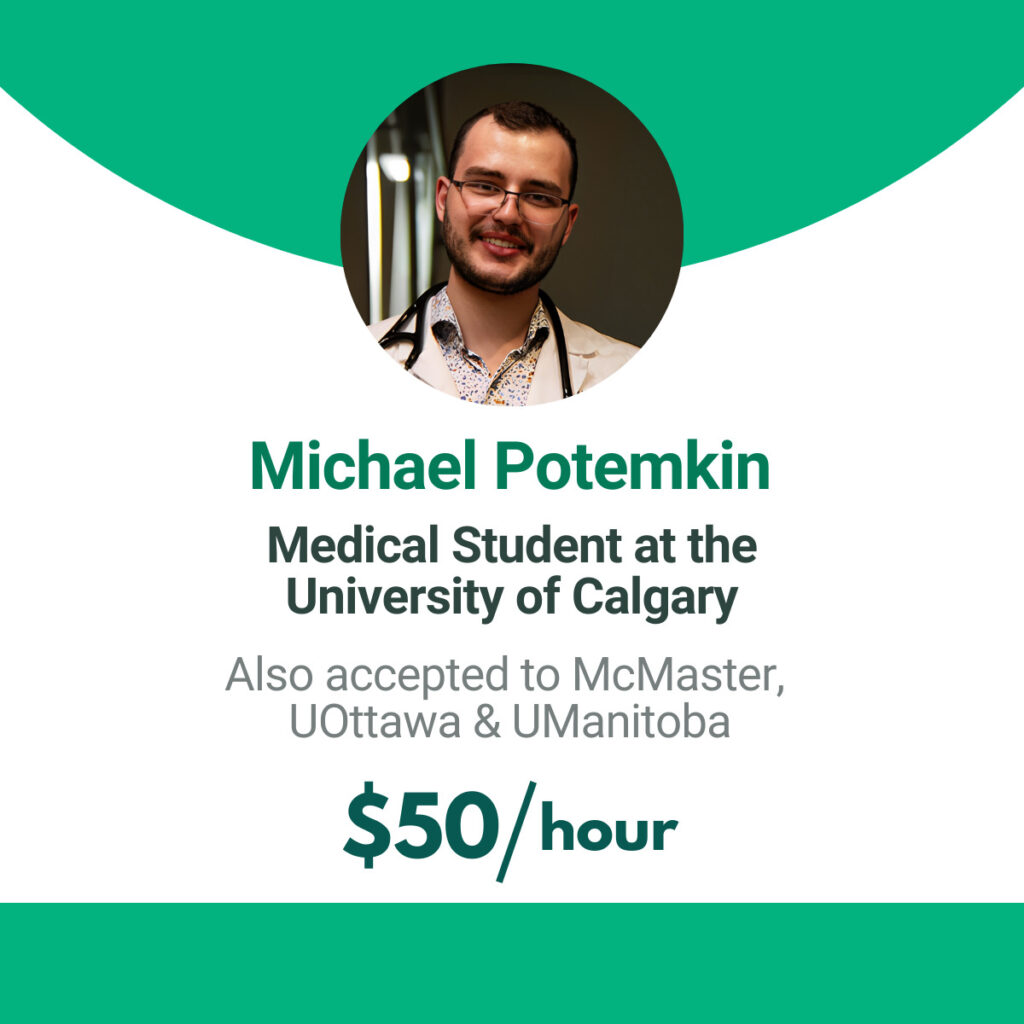
Conclusion: Navigating the UofT vMPI with Insight and Authenticity
As we conclude our exploration of the nuances of the virtual modified personal interview (vMPI) at the University of Toronto’s Temerty Faculty of Medicine, it’s clear that success in this innovative interview format hinges on more than just academic prowess. It demands a blend of authenticity, reflective thinking, conversational engagement, and humility.
The journey to acing the UofT vMPI is unique for each individual. By embracing the unconventional strategy of revisiting old essay questions, you can gain a deeper understanding of the UofT’s expectations.
Moreover, your approach to the interview scenarios should be grounded in honesty and realism. Adopting a conversational tone, avoiding clichéd responses, and balancing confidence with humility will further distinguish you in the eyes of the interviewers. We do recommend you receive high-yield interview coaching prior to the UofT vMPI, so don’t hesitate to reach out to any of our experienced AcceptedTogether consultants who got into Temerty Medicine by clicking here. Our consultant can work with you to help you figure out how to perform your best on the day of the UofT MPI. Good luck!


